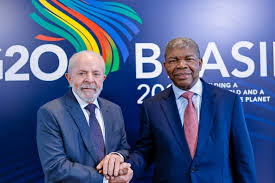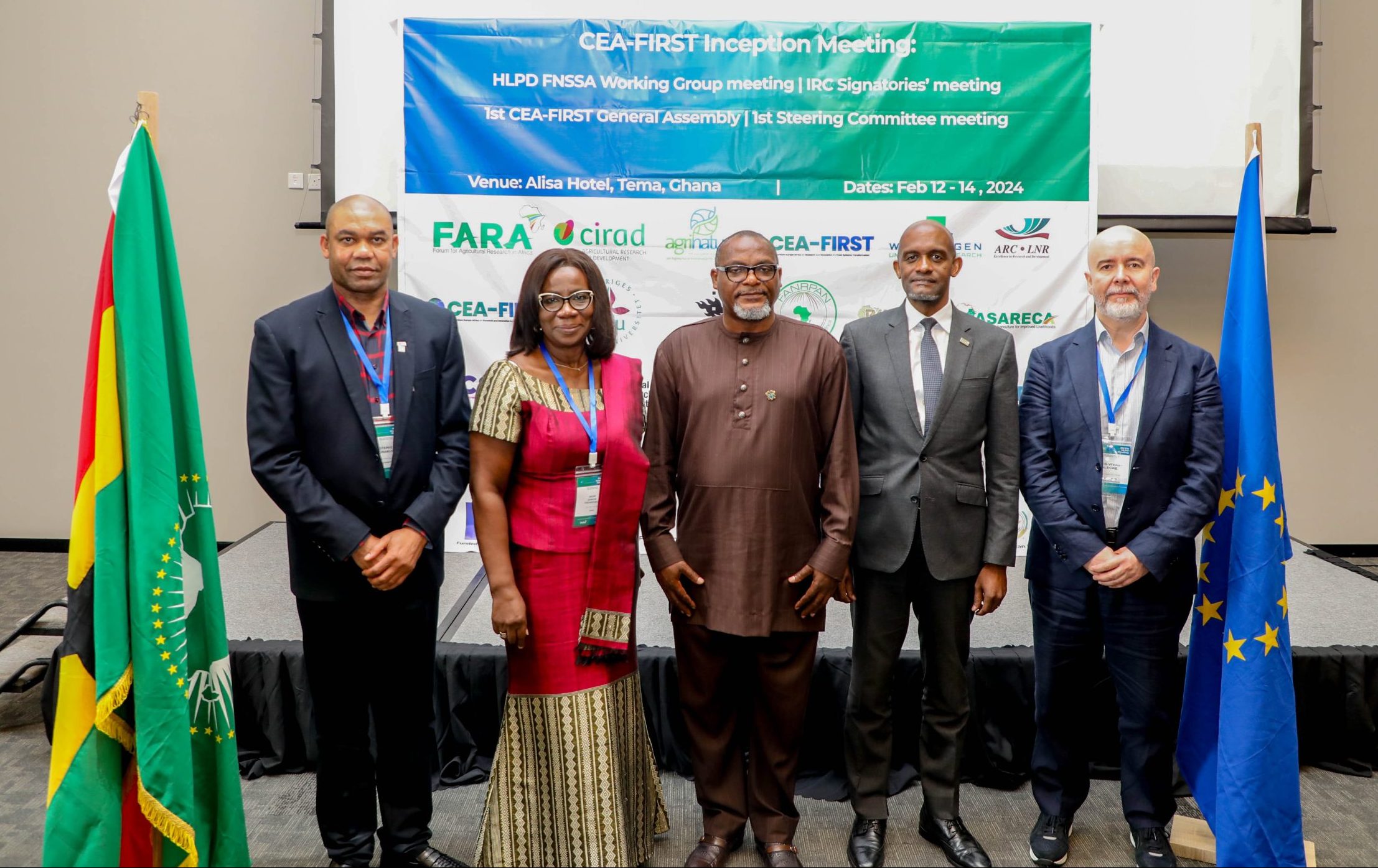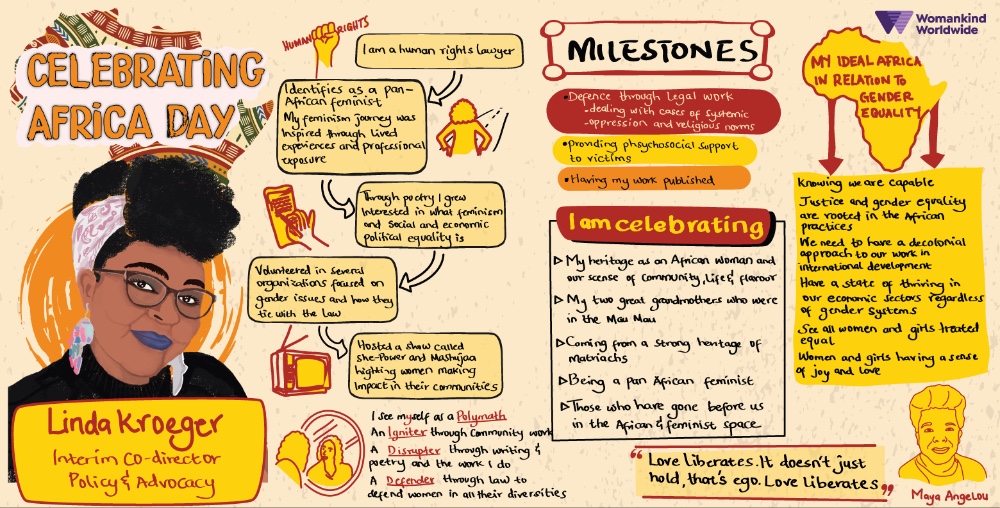
Introduction
On 9 September 2023, at the G20 summit in New Delhi, the African Union (AU) was admitted as a permanent member of the G20—making the forum effectively a G21 Reuters+15Wikipedia+15Axios+15. This move symbolized recognition of Africa’s demographic scale, economic potential, and strategic importance, opening new pathways for transformative global influence. Yet, beyond symbolism, the AU’s presence presents substantive opportunities—and challenges—for transforming global governance, economic architecture, and Africa’s own development trajectory.
For more: https://africaciviclens.com/
1. Symbolism: Recognition, Representation, and Identity
1.1 Correcting Historical Under‑representation
For over two decades, Africa lacked a collective voice at the G20. South Africa alone represented one continent of 55 states, with no mandate to speak for the whole region Journals.co.za+8The Africa Report+8g20.org+8Afripoli. The AU’s elevation thus rectifies a structural omission, acknowledging Africa as a co‑equal partner rather than a passive “ward” of global forums.
1.2 Demographic and Resource Recognition
Africa today is home to approximately 1.3–1.4 billion people, projected to account for 25 percent of the world’s population by mid‑century Afripoli. Economically, the AU has a combined GDP near US $3 trillion, vast renewable energy and critical minerals endowment (e.g. cobalt, platinum), and controls a large share of global reserves essential to emerging technologies France 24. Symbolically, this signals the world is acknowledging Africa’s increasing economic and demographic weight.
1.3 Global South Solidarity
The inclusion of the AU underscores G20’s evolving identity from purely economic discussion platform to a governance forum sensitive to Global South concerns. India’s G20 presidency welcomed the AU, and China launched joint initiatives with the AU to support innovation, recognizing the Global South’s rising influence ORF Online+3Reuters+3The Guardian+3.
2. Transformation through Institutional Influence
The inclusion of the African Union (AU) as a permanent G20 member opens critical opportunities to influence the global economic governance architecture. Beyond symbolic representation, the AU’s seat allows it to champion long-overdue reforms in global financial systems, advocate for equitable trade policies, push for climate justice, and support Africa’s digital transformation. However, to convert this influence into tangible change, strategic alignment with global partners and internal coherence across AU institutions are essential.
2.1 Reforming the Global Financial Architecture
Africa’s structural integration into the international financial system remains skewed. The continent holds just 6.5% of IMF voting power, receives marginal shares of global capital flows, and suffers from restrictive borrowing conditions that worsen debt vulnerabilities (IMF, 2023). The AU’s G20 membership provides a strategic platform to advocate for reforming the architecture of the International Monetary Fund (IMF), the World Bank, and Multilateral Development Banks (MDBs).
Africa’s external debt burden exceeds $800 billion, much of which is owed under non-transparent terms, including significant bilateral debt to China and Eurobond issuances with high interest rates (Reuters, 2025). Servicing this debt diverts substantial fiscal resources from education, healthcare, and infrastructure. The AU, through the G20, is pressing for a restructuring mechanism that includes:
- Expansion of the Common Framework to middle-income countries.
- Debt-for-climate swaps, to allow African nations to redirect repayments into green infrastructure.
- Enhanced Special Drawing Rights (SDR) allocation, including re-channeling unused SDRs from high-income countries toward African development banks.
Furthermore, the AU has advocated for more concessional lending terms from MDBs and for Africa to be treated based on its development needs—not simply credit risk. The African Development Bank (AfDB) and African Export-Import Bank (Afreximbank) are also central to these discussions, with the AU pushing for them to be recognized as core vehicles of regional finance under the G20’s evolving infrastructure finance initiatives.
Critically, AU membership allows African institutions to participate in shaping international macroeconomic responses to global shocks (such as pandemics, food insecurity, or monetary tightening), which previously excluded African voices despite their impact on the continent.
2.2 Trade Architecture and Continental Integration
Africa’s participation in global trade has historically been marginal and extractive—dominated by exports of raw materials and characterized by weak intra-African trade. The African Continental Free Trade Area (AfCFTA), launched in 2021, seeks to reverse this dynamic by creating a single African market encompassing 55 countries and 1.4 billion people.
The AU’s seat at the G20 now allows the continent to push for reforms in global trade rules to support this continental ambition. Key priorities include:
- Reforming WTO rules to reflect Africa’s developmental challenges (e.g., subsidies, intellectual property, digital trade barriers).
- Advocating for preferential market access for African exports, especially in pharmaceuticals, textiles, and food products.
- Promoting inclusive global value chains that incorporate African producers—not merely as resource suppliers but as industrial participants.
- Ensuring that new G20 supply chain frameworks are inclusive of Africa’s logistics, ports, and manufacturing ambitions.
The AU is also actively engaging with the G20’s Trade and Investment Working Group to ensure that AfCFTA benefits from integration into regional and global trade policy. Aligning the AfCFTA with South–South trade partnerships (including BRICS+ and ASEAN) is another core priority, particularly in view of rising tariffs and deglobalization trends. Moreover, the continent’s intra-African trade currently stands at only ~17%, compared to over 60% in the EU. G20-enabled trade facilitation (customs simplification, harmonized rules of origin, e-logistics) can help scale this quickly (AfCFTA Secretariat, 2024).
By promoting AfCFTA in global forums, the AU not only legitimizes Africa’s regional integration efforts but also helps shape a multipolar trade world that is less dominated by transatlantic or Asia-centric rules.
2.3 Climate, Energy, and the Sustainable Transition Nexus
Africa faces the triple burden of climate exposure, energy poverty, and under-financing. Although contributing only 3–4% of global emissions, the continent is highly vulnerable to rising temperatures, floods, droughts, and desertification—all of which threaten livelihoods, food security, and public health (UNEP, 2023).
The AU’s G20 presence allows it to amplify calls for climate justice and the full operationalization of previously made commitments, such as:
- The $100 billion/year climate finance pledge (still unmet).
- Increased access to the Loss and Damage Fund operationalized at COP28.
- Just Energy Transition Partnerships (JETPs) that reflect African realities—including energy mix diversity and gas as a transition fuel.
Importantly, Africa holds 60% of the world’s solar resources and is home to vast reserves of critical minerals (cobalt, lithium, graphite) essential to the global energy transition. The AU seeks to leverage this through the African Green Minerals Strategy and link it with G20 clean energy supply chains.
Additionally, the AU is working to shift the narrative from Africa as a climate victim to a climate solutions provider. With proper investment, the continent can become a net exporter of green hydrogen, solar electricity, and sustainable fuels. G20 dialogue offers a space to secure blended finance, de-risking frameworks, and technology transfer commitments to enable this transition.
2.4 Digital Governance and Innovation
Africa has the world’s youngest population—with over 60% under the age of 25—and increasing rates of internet and mobile penetration. This demographic dividend, combined with rising fintech innovation (e.g. Flutterwave, M-Pesa), presents Africa with a golden opportunity to leapfrog traditional infrastructure limitations.
Yet, the continent still lacks:
- Pan-African digital infrastructure (fiber optics, data centers).
- Harmonized digital identity systems.
- Cross-border regulatory and cybersecurity frameworks.
- Inclusive access to cloud computing, AI, and digital payment infrastructure.
The AU’s G20 seat offers a crucial chance to shape the emerging global digital governance order. As issues like AI regulation, cross-border data flows, and digital taxation are debated in global forums, Africa’s representation can ensure that its unique context is not left out.
The AU is now:
- Working to scale the Pan-African Payment and Settlement System (PAPSS).
- Advocating for global public goods in the digital space, such as open-source platforms and universal access protocols.
- Calling for technology transfer mechanisms and digital upskilling initiatives under G20 development programs.
These initiatives align closely with Agenda 2063’s aspirations for a “digitally empowered Africa,” where innovation, entrepreneurship, and e-governance are the backbone of economic transformation.
The AU’s presence in the G20 marks a paradigm shift in Africa’s role in shaping the future of global governance. Whether in finance, trade, climate, or technology, Africa now has a forum to assert its priorities—not as a recipient of charity or a marginal stakeholder, but as a co‑author of global solutions.
To convert this opportunity into systemic influence, however, the AU must ensure internal coherence, build technical capacity, and forge strategic alliances within the G20. The next steps will determine whether G20 membership becomes a vehicle for transformation or remains a symbol of inclusion without impact.
3. Domestic Transformation: Agenda 2063 and National Impacts
3.1 Aligning with Agenda 2063
Agenda 2063 is AU’s strategic blueprint with aspirations such as integrated infrastructure, industrialization, skills development, agricultural development, and African passport/free movement. Through G20 access, the AU can seek alignment of G20 policy and investment priorities with Agenda 2063 flagship initiatives indiafoundation.inORF Online.
3.2 Financing Infrastructure and Industry
The G20 platform can help channel private and multilaterial financing into AfDB, Africa EXIM bank, and continental infrastructure projects—like the high‑speed rail networks, mining mission, Continental Free Trade Area, agricultural development plan, and outer space strategy indiafoundation.in.
3.3 Regional Cohesion and Common Voice
Internally, the AU must develop coherent positions among its 55 states on trade, debt, climate, digital policy. Its rotating chairmanship and political diversity present challenges. Unless it speaks with unity, G20 influence risks being diluted France 24.
4. Enablers and Obstacles to Impact
4.1 Institutional Readiness and Policy Coordination
Effective participation requires AU institutional capacity—coordinated among Commission chairperson, rotating chair, AU Assembly, and member-state ministries. The 2024 summit saw internal dispute over who represents the bloc, suggesting a need for clearer governance structures AP News+6Wilson Center+6The Africa Report+6.
4.2 Global Power Dynamics and Geopolitical Polarisation
AU must navigate tensions among major powers: US-China, BRICS-West divides, trade wars, climate finance withdrawal (e.g. US from JETP), and divergent agendas. Engagement from South Africa’s G20 presidency shows goodwill, but geopolitical rivalries may limit consensus action Reuters+1Reuters+1.
4.3 Internal African Disparities and Divergent Interests
Member states vary widely in economic structure, governance quality, external alignments. Some may prefer bilateral deals over common AU position. Building continental consensus on trade-offs (e.g., on energy mix) will be difficult The Business & Financial TimesThe Africa Report.
4.4 Resource Constraints and Financing Gaps
Africa’s financing needs remain massive: climate adaptation, energy, infrastructure. G20 membership does not guarantee flows; AU must mobilize commitments from MDBs and donor countries, while combating global austerity trends and cuts in multilateral aid ReutersThe Business & Financial Times.
5. Stocktake: Progress and Gaps (to Mid‑2025)
5.1 Milestones Achieved ✅
a) Permanent Membership Secured
The African Union formally became a permanent member of the G20 at the New Delhi Leaders’ Summit on September 9, 2023. This institutional elevation places the continent on par with the European Union, marking a historic recognition of Africa’s growing demographic, economic, and geopolitical relevance African Union+14CNBC+14World Economic Forum+14.
b) First Full Participation at Rio 2024
The November 2024 G20 Summit in Rio de Janeiro was AU’s first summit as a full member, coordinated under Brazil’s presidency. Preparatory efforts included establishing internal AU modalities as early as December 2023, and the AU Assembly identifying strategic priorities tied to Agenda 2063, reform of global trade (WTO), debt restructuring, food security, and industrialization Afripoli+1Wilson Center+1. The AU’s leadership (both Assembly Chair and Commission Chair) jointly represented the bloc—a temporary protocol resolving earlier internal disputes about representation continuity Wilson Center.
c) Inclusion of AU Priorities in G20 Finance Track
Under South Africa’s 2025 G20 presidency, AU-led priorities (Agenda 2063 alignment, debt relief, climate finance, enhancing cross-border payments, and boosting credit for infrastructure) became core agenda items of the G20 finance ministers’ and central bank deputies’ meetings held in Durban and Cape Town The Hindu Business Line+15African Union+15Reuters+15. This marks a tangible shift from mere visibility to substantive engagement.
d) Emerging Support Platforms from G20 Partners
Major Global South partners—particularly China, India, Brazil, and South Africa—have supported AU empowerment and initiated cooperation platforms. Notably, at the Rio summit, China launched with the AU, Brazil, and South Africa a Global Alliance for Open Science Cooperation, reflecting expanded scientific and investment collaboration aligned with AU development priorities Afripoli.
e) South Africa’s “First‑Ever” African G20 Presidency
South Africa assumed the G20 presidency in late 2024, representing the first African-led G20 cycle. Its theme—“Solidarity, Equality, Sustainability”—highlighted African and Global South development agendas, particularly sovereign debt, inclusive growth, climate resilience, and digital innovation, closely aligned with AU’s Agenda 2063 objectives Reuters+2Wilson Center+2Reuters+2.
Together, these milestones reflect structural integration of Africa into global economic governance and initial institutional footholds appropriate to AU expectations and agenda.
5.2 Unfulfilled Objectives ⚠️
While significant progress has been made on representation and agenda inclusion, several critical gaps persist:
a) Institutional Reform: Discussion Precedes Action
Although G20 meetings have included calls to reform IMF/World Bank governance, expand the G20 Common Framework, and improve debt transparency, no binding commitments or policy changes have materialized as of mid‑2025. AU proposals remain at the level of discussion and declaration, without concrete shifts in institutional voting power or expanded SDR allocations The Hindu Business Line+5Afripoli+5Reuters+5Reuters.
b) AU Lacks a Unified, Continuity‑Oriented Position
Continuity in AU representation has been hampered by rotating leadership. The compromise of a joint representation model for Rio (Assembly Chair + Commission Chair) may be temporary and does not resolve underlying tensions over who leads AU in G20 forums. Without a standardized representation mechanism, AU messaging risks inconsistency and dilution across successive G20 cycles Wilson CenterAfripoli.
c) Financing Commitments Fall Short
Despite extensive advocacy for climate and development financing, actual pipelines remain limited. The $100 billion/year climate finance pledge remains unmet; the U.S. withdrawal from JETP funding further jeopardizes optimism. There is limited disbursement toward large projects and no evidence of scaled mobilisation through MDBs matching AU demands ReutersReuters.
d) Trade & Industrial Uptake Still Lagging
Although AfCFTA integration and payment system agendas appear in G20 dialogues, neither intra-African trade nor value-added export growth has shown meaningful uptake. Persistent barriers—poor transport corridors, inconsistent customs harmonization, weak industrial bases, and low credit ratings for countries—continue to limit trade modernization. As a result, AfCFTA’s potential remains under-leveraged in shaping G20 engagement outcomes Afripolig20.org.
e) Geopolitical Frictions Undermine Consensus
Polarization—particularly due to U.S.–China, BRICS–West tensions and the unpredictability of an impending Trump administration—poses challenges to multilateral consensus. Notably, U.S. Treasury Secretary Scott Bessent missed consecutive finance-track meetings in Durban and Cape Town, casting doubts on U.S. commitment. This absence risked weakening consensus around debt relief, climate finance, and trade positions that are critical to AU ideals Reuters+4Reuters+4Financial Times+4.
While the symbolic gains of AU’s G20 membership—particularly the permanent seat and first full summit participation—are now established, transformational impact remains tentative. True shifts in global governance, finance, trade architecture, and industrialization will require translating G20 dialogue into binding policy reforms, financed programs, and effective internal coordination. The AU’s early engagement has charted a credible foundation—but significant work remains to convert milestones into momentum and intent into implementation.
6. From Symbolism Toward Transformation: Recommendations
- Strengthen AU institutional coherence:
- Formalize representation rules at G20 (chair vs Commission head).
- Create AU G20 coordination unit internal to Commission with stakeholder inputs.
- Develop internal policy consensus mechanisms across member states.
- Align Agenda 2063 with G20 initiatives:
- Map AU flagship projects to G20 priority areas (infrastructure, climate, digital).
- Use G20 to source financing partnerships, technical support, and trade alignment.
- Leverage partnerships for multilateral reform:
- Build alliances within G20 around debt relief, SDR allocation, IMF voting reforms.
- Coordinate with other southern constituencies (Global South Coalition, BRICS) to pressure for change.
- Mobilize financing:
- Engage MDBs and development banks to operationalize financing pledges.
- Use AU seat to negotiate new blended finance mechanisms tailored to African needs.
- Champion climate‑justice and green industrialization:
- Push for just transition finance that acknowledges Africa’s resource endowment and development needs.
- Promote industrial policy integration: linking African mineral value chains with global green transformation.
- Prioritize digital economy integration:
- Advocate for global digital governance frameworks that support Africa’s payments innovation, cross-border digital trade, and data sovereignty.
- Institutionalize long‑term strategic engagement:
- Ensure continuity beyond rotating chairmanships.
- Build think‑tank and civil society platforms (e.g. APRI research series like “Symbolism to Transformation” itself) to track, evaluate, and advise on AU’s G20 impact Afripoli.
Conclusion
The admission of the African Union as a permanent G20 member carries enormous symbolic meaning: it acknowledges Africa’s demographic power, resource wealth, and rightful place in global governance. Yet, the move’s ultimate success should be measured not by symbolism alone but by transformative outcomes—from reforms in global institutions to Africa’s own development through Agenda 2063.
Initial progress is encouraging: the AU has a seat at the table, priorities are being aired within G20 forums, and African voice is more visible. Yet real impact requires persistent coordination, unity, financing leverage, and adept navigation of geopolitical dynamics.
In the years ahead—as the AU hones a collective position, aligns G20 engagement with continental priorities, and turns rhetoric into negotiated outcomes—the transformation potential becomes tangible. If managed well, AU’s G20 membership can signal Africa’s emergence from symbolic inclusion to effective partnership in shaping the future of global governance and inclusive development.
References & External Links
- “African Union in the G20… leap for the continent” – G20 Official Website g20.org+1The Guardian+1
- “African Union at the G20 High Table…” – ORF (Observer Research Foundation) ORF Online
- “Implications of the African Union as the 21st member of the G20…” – India Foundation indiafoundation.in
- “Why the G20 needs African Union…” – The Africa Report The Africa Report
- “Symbolism to Transformation: An analytical stocktake…” – APRI Afripoli
- Institute for Reuters/Associated Press articles on AU admission news summaries Wikipedia+12AP News+12The Guardian+12
- The post by:
https://allafrica.com




